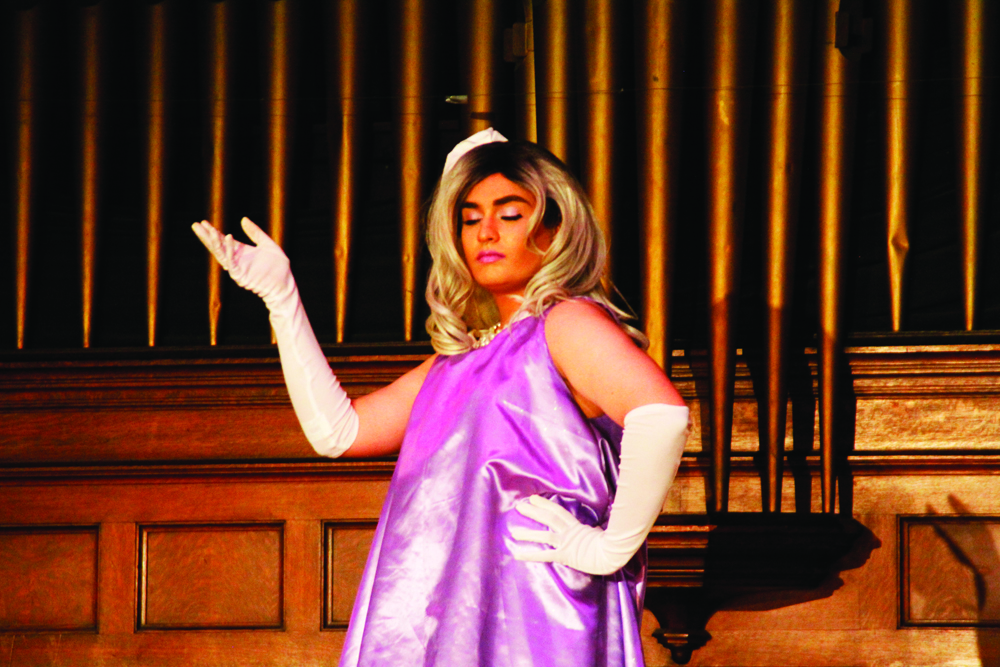
Drag is an art form in which men dress in feminine clothing and makeup and perform onstage to challenge gender roles and celebrate femininity — both good things. However, in the context of drag culture and the iteration of this art form some unfortunate implications related to gender politics have evolved.
One major issue is that drag inherently can only celebrate femininity by proxy of men because it is normal for women to dress in feminine clothing and wear makeup on a daily basis. Another issue is that the femininity celebrated in drag is limited to traditional femininity. By nature this excludes transgender men, transgender women and anyone who does not conform with binary gender roles in daily life.
A third issue, specific to this iteration of the drag, is the characters or ‘queens’ invented for the costumes. Their representation tends to be gimmicky and shallow, if not sexualized to the point of absurdity. The insulting and problematic implications here do not need elaboration.
The cisgender male actors who play drag queens, especially on the popular drag show RuPaul’s Drag Race (whether in or out of costume), frequently use gendered slurs with an attitude of ‘reclamation’ even though those slurs are not theirs to reclaim.
Yet another problem is that drag, literally men in dresses, provides a very easy narrative for many cisgender people to understand and helps them avoid accepting the continued existence of transgender people. They can see someone passing poorly but wearing makeup and feminine clothes and think, “Oh, a drag queen.” Occasionally they might even approach the person and ask how long they have been doing drag and what their persona’s name is. I know because that has happened to me. The experience was not pleasant.
Adding insult to injury, the queens (who, again, are fictional characters) are referred to by the correct pronouns and names with almost religious attention, while those of myself and other real people like me are constantly and consistently ignored by people who never give it a second thought. This happens despite the fact that misgendering or deadnaming a fictional character cannot hurt anyone, while doing the same thing to a real transgender person can hurt a great deal.
Drag as an art form out of context, based purely in messing with gender roles and expectations, is fine. In the context of the current turmoil and strife in gender politics, it hurts me and others like me — politically when not emotionally and socially when not personally. The current art form is riddled with issues that make life harder for women, especially transgender women and transfeminine people.
I do not ask that anyone stop participating in or enjoying drag shows. I do not ask that an entire art form grind to a halt because it hurts some people’s feelings. I ask that those who do participate in the production and consumption of the art form bear in mind that it encompasses topics that are very sensitive to some people and that a certain level of tact may be beneficial.

